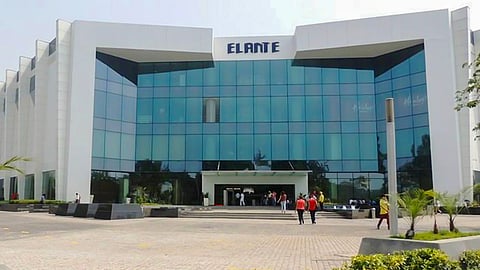

Elante Mall, one of the Chandigarh's most prominent commercial landmarks, has taken the Chandigarh Municipal Corporation (MC) to court over a disputed property tax and fire cess assessment. The mall’s management has approached the Punjab and Haryana High Court, arguing that the civic body’s tax demand was wrongly calculated and contrary to existing building regulations.
The petition, filed by CSJ Private Limited, which owns and operates Elante Mall, challenges the MC’s demand of over Rs 58 lakh for the financial year 2018–19. The mall authorities have alleged that the civic body’s assessment included areas that should not be taxed, such as public corridors, service zones, basements used for parking, lift shafts and washrooms.
According to the petition, the MC issued a demand notice under Section 101 of the Punjab Municipal Corporation Act (as extended to Chandigarh) in April 2018. The mall management said it paid the amount “under protest” in May that year and subsequently filed objections, seeking a reassessment and refund of the excess payment.
The petition cites previous government notifications and building norms, including a 2008 Chandigarh Administration order, which exclude non-revenue-generating areas like service floors, ramps, and parking spaces from being counted in the floor area ratio (FAR). By including such spaces in the taxable area, the mall claims, the MC exceeded its authority and imposed an unfair burden.
The matter was recently heard by a division bench of Justice Deepak Sibal and Justice Lapita Banerji. The High Court has issued notices to the Chandigarh Administration and the MC, asking them to file their replies. The next hearing has been scheduled for February 19, 2026.
Municipal officials, however, maintain that the assessment was made in accordance with the self-assessment scheme under municipal laws, which requires all operational spaces within commercial properties to be declared for taxation. The MC has in recent years intensified efforts to recover pending property tax from large establishments across the city, with several high-value cases under scrutiny.
Legal experts note that the outcome of this case could influence how property tax assessments are made for major commercial complexes in Chandigarh, especially regarding the definition of “built-up area” and exemptions for non-revenue spaces.
The High Court will take up the matter for further hearing in February next year.